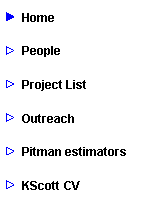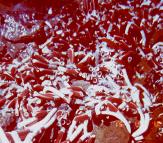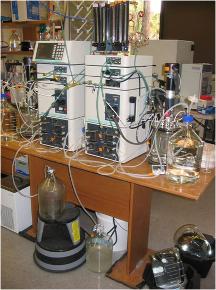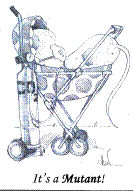|
University of South Florida |
|
We’ll fix *your* carbon... |

|
Giant Riftia worms from a hydrothermal vent on the East Pacific Rise. Vent communities such as this one are sustained entirely by carbon fixation by autotrophic microorganisms that use geothermally-produced reduced chemicals for energy. |
|
Scott Lab Introduction |
|
We study inorganic carbon uptake and fixation by autotrophic microorganisms, with an emphasis on marine systems, including deep-sea hydrothermal vents as well as ocean surface communities.
We care about these processes since carbon fixed by autotrophic microorganisms is a substantial fraction of the organic carbon that enters food webs (though if you consider chloroplasts to be derived cyanobacteria…’substantial’ = ‘all’). These organisms are diverse in every possible way. Autotrophs populate the tree of life in all three domains; accordingly, different species of autotrophs are wildly different from eachother with respect to energy sources used (e.g., sunlight, versus redox-sensitive chemicals) and biochemistries (there are currently *6* known autotrophic carbon fixation pathways, with more on the horizon). They thrive in benign-to-impossible habitats, and the significance of their role(s) in biogeochemical cycles beyond carbon is impossible to overstate.
We use a variety of approaches, including bioinformatics, molecular manipulation, chemostat cultivation, mass spectrometry … whatever it takes. Sometimes we get lucky and do fieldwork. |

|
Mail: KT Scott, USF IB Dept. 4202 East Fowler Avenue 110 SCA Tampa, FL 33620
Shipments: 4202 East Fowler Avenue NES 107 Tampa, FL 33620
|
|
To contact us: |
|
Phone: 813-974-5173 E-mail: kmscott@usf.edu |



|
Artwork by D. Nicholson |